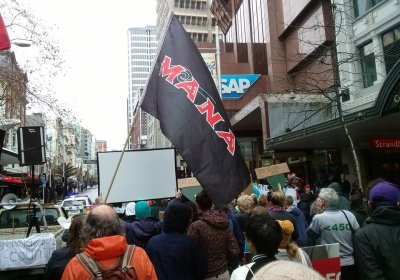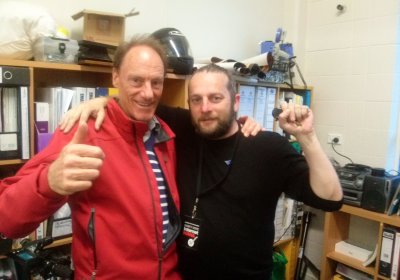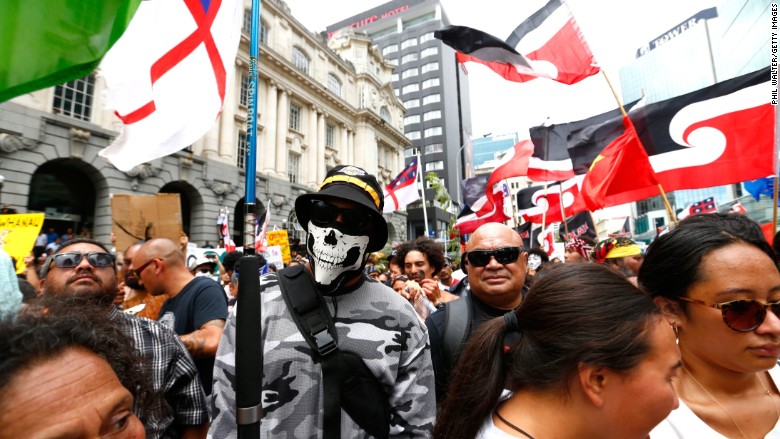 Anti-TPP protesters in Auckland.
Amid angry protests in the streets, Pacific rim countries signed the controversial Trans-Pacific Partnership (TPP) trade deal on February 4 in New Zealand's capital Auckland.
Anti-TPP protesters in Auckland.
Amid angry protests in the streets, Pacific rim countries signed the controversial Trans-Pacific Partnership (TPP) trade deal on February 4 in New Zealand's capital Auckland.
Aotearoa New Zealand
 Anti-TPP protesters in Auckland.
Amid angry protests in the streets, Pacific rim countries signed the controversial Trans-Pacific Partnership (TPP) trade deal on February 4 in New Zealand's capital Auckland.
Anti-TPP protesters in Auckland.
Amid angry protests in the streets, Pacific rim countries signed the controversial Trans-Pacific Partnership (TPP) trade deal on February 4 in New Zealand's capital Auckland.
 Protesters occupy Australian Consulate, Auckland, November 11.
I was glad to be part of the November 11 protests, organised by the trade union Unite and by Global Peace and Justice Auckland, at the Australian Consulate in Auckland over their government's policies that have led to the indefinite detention of asylum seekers and Australian residents born in New Zealand in what are in effect concentration camps.
Protesters occupy Australian Consulate, Auckland, November 11.
I was glad to be part of the November 11 protests, organised by the trade union Unite and by Global Peace and Justice Auckland, at the Australian Consulate in Auckland over their government's policies that have led to the indefinite detention of asylum seekers and Australian residents born in New Zealand in what are in effect concentration camps.
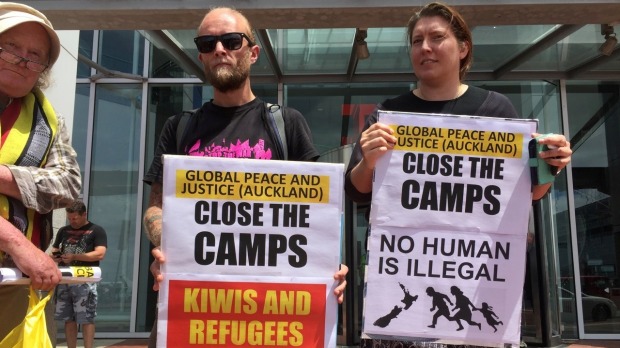 Protesters outside the Australian consulate in Auckland.
Protesters in Auckland have stormed the Australian consulate on November 11 in protest at Australia's treatment of asylum seekers in prison camps, as well as the detention at Christmas Island of New Zealand citizens.
The protest, backed by trade union Unite and Global Peace and Justice Auckland, comes amid an uprising by Christmas Island detainees in the aftermath of the death of Iranian Kurdish refugee Fazel Chegeni.
Protesters outside the Australian consulate in Auckland.
Protesters in Auckland have stormed the Australian consulate on November 11 in protest at Australia's treatment of asylum seekers in prison camps, as well as the detention at Christmas Island of New Zealand citizens.
The protest, backed by trade union Unite and Global Peace and Justice Auckland, comes amid an uprising by Christmas Island detainees in the aftermath of the death of Iranian Kurdish refugee Fazel Chegeni.
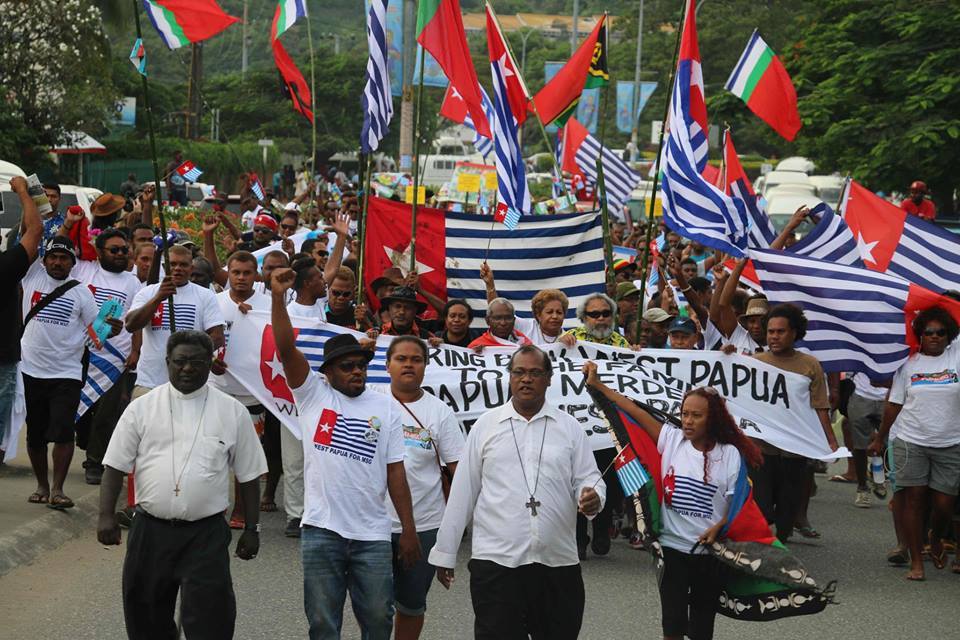 Demonstration in solidarity with West Papua. Honiara, Solomon Islands.
Indonesian police beat two West Papuan students in Yahukimo, Papua Province, on September 16 for handing out leaflets about the Pacific Islands Forum.
Demonstration in solidarity with West Papua. Honiara, Solomon Islands.
Indonesian police beat two West Papuan students in Yahukimo, Papua Province, on September 16 for handing out leaflets about the Pacific Islands Forum.
The tasteless joking between immigration minister Peter Dutton and Prime Minister Tony Abbott about the threat of rising sea levels to Pacific Islands — caught on a microphone after the Pacific Island Forum (PIF) meeting — sums up the Australian government's attitude to the victims of its climate inaction.
The 46th PIF leaders' meeting in Port Moresby ended without reaching agreement on a united position to take to the Paris climate summit later this year. Pacific Island leaders could not convince Australia and New Zealand to agree on more ambitious targets.
There were huge protests against the Trans-Pacific Partnership held across New Zealand on August 15. About 10,000 protesters marched in Auckland, 5000 in Wellington, 4000 in Christchurch and thousands more in other parts of the country.
New Zealand's Unite Union, which organises fast food, hospitality and retail workers, announced a big win on May 1 with McDonald's finally agreeing to join Burger King and Restaurant Brands and cease using controversial “zero hour” contracts.
 Photo: Unite.org.nz.
Striking McDonald’s workers took part in marches and pickets in Auckland, Palmerston North, Wellington, Christchurch and Dunedin on April 15, with many speaking to the crowds and media about the hardship of living with insecure work and income.
Photo: Unite.org.nz.
Striking McDonald’s workers took part in marches and pickets in Auckland, Palmerston North, Wellington, Christchurch and Dunedin on April 15, with many speaking to the crowds and media about the hardship of living with insecure work and income.
Near the heartland of New Zealand’s renowned wine country, there is a place where visitors are not allowed to go. The peculiar large white domes that protrude from the earth in the Waihopai Valley are surrounded by razor wire and shrouded in secrecy.
Staring down scandals related to revelations in a recently published book, Dirty Politics, and revelations of mass government surveillance, incumbent Prime Minister John Key led his right-wing National Party to become the first party with an outright majority in parliament since the current electoral system was set up in 1996.
The Labour opposition, however, slumped to about 24% of the vote ― its worst result ever.
Laila Harre, the leader of the newly formed Internet Party, told a September 16 stop-work meeting in west Auckland organised by the FIRST and Unite unions, that state spying was not due to concerns about terrorism, but to target people who “organise for change”.
John Minto is a veteran New Zealand activist who became known as a leader of a powerful anti-apartheid campaign in the 1970s. More recently, he was part of organising some of the largest pro-Palestine demonstrations ever in New Zealand.
- Previous page
- Page 4
- Next page


